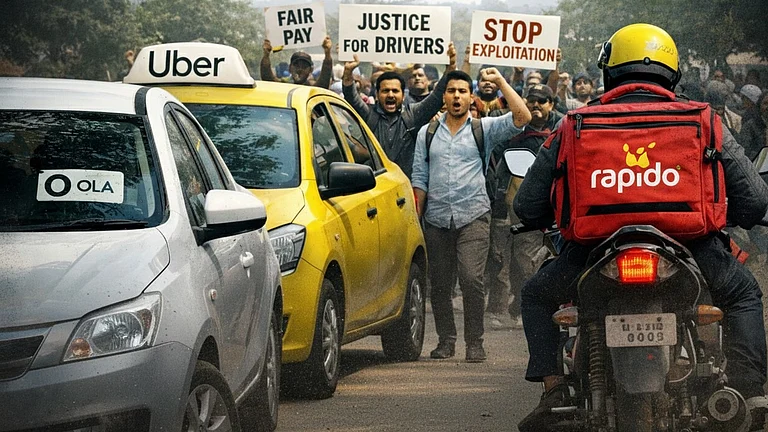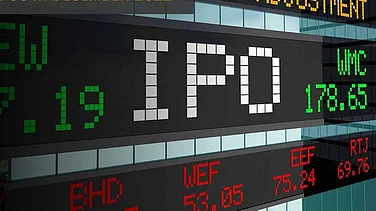Ola is gearing up to enter the quick commerce race, challenging platforms like Instamart, Blinkit, and Zepto.
During the company’s Sankalp event on August 15, CEO Bhavish Aggarwal unveiled several new initiatives. He announced that Ola Cabs, now rebranded as Ola Consumers, will introduce a range of consumer-focused measures.
With a focus on the quick commerce segment, the company is planning to come up with an automated warehousing solution. This automated warehousing solution will be 90 per cent cheaper than the existing dark stores, as per the company.
Taking to X, Aggarwal posted, “In Ola Consumer, innovative solutions like Ola Credit, AI shopping Co-pilot, and automated dark stores are going to revolutionize the consumer experience.”
Partnership with ONDC
Aggarwal has mentioned that Ola’s partnership with government-backed ONDC will help make e-commerce more accessible, affordable, and accessible. The portable warehousing solutions that Ola is building would act as dark stores for ONDC.
So basically, companies and brands that are available on ONDC can avail of these dark stores. Ola already has partnerships with ONDC. According to Moneycontrol, the ride-hailing platform is the second-biggest buyer-side platform on ONDC for meal delivery. Furthermore, the business reportedly fulfills 15,000–20,000 meal orders per day.
Several companies, such as Ola and Paytm, are leaning on ONDC. They are offering huge discounts to consumers in order to counter the price of Zomato and Swiggy. Ola, which joined ONDC for food delivery in September 2023, has been offering huge discounts to its consumers. As per Inc42, the company offers 70-80 per cent cheaper delivery as compared to other food delivery platforms such as Swiggy and Zomato.
The number of sellers and service providers in ONDC is around 638,000 sellers. Additionally, the government-backed platform recently highlighted that it had reached 12 million orders in July, reaching an all-time high.
Along with offering discounts, the platform also doesn't have platform fees like Swiggy and Zomato as of now. Both Swiggy and Zomato charge a platform fee of Rs 6 per order in Delhi and Bengaluru.
Fully Automated Dark Stores
With the increasing demand for same-day delivery, dark stores are increasing in India. All quick commerce platforms are focusing on expanding dark stores. Blinkit recently announced that it plans to have 2,000 dark stores by the end of 2026. Flipkart is also planning to have 100 dark stores ahead of its Big Billion Days sale.
However, as of now, dark stores are run manually, by physical labour. Ola, on the other hand, is saying that its dark stores will be 100 per cent automated. These dark stores, as mentioned before, will help reduce costs. Additionally, they are portable and will offer three times the space of normal dark stores.
So, one can put them in any real estate where there is a steady supply of electricity. Aggarwal reportedly said, “It is a container that you manufacture in a factory; put it in a truck that plugs into any kind of real estate.”
While it remains to be seen how these dark stores will perform in India, one thing is visible: technology will play a key role in the quick commerce segment. An article by Deloitte titled ‘The future of grocery retail’ says, “Dark stores with robotic pick and pack, app-guided and virtual and augmented reality (VR/AR) shopping, generative artificial intelligence (Gen AI) personalized content, onsite vertical farms, lab-grown meat, autonomous trucks, advanced tracking and traceability, last-mile delivery, and frictionless checkout are just a few of the initiatives competing to revolutionize grocery and the shopping experience.”
Additionally, drones are also being used by some to fasten the delivery process. Walmart backed Flipkart has been trying to focus on the usage of drones for delivery. Last year, the e-commerce platform collaborated with the Telangana government to deliver essential services such as vaccines and medicines. Speaking to Mint, Jeyandran Venugopal, chief product and technology officer at Flipkart, said, "But doing last-mile deliveries (deliveries to actual consumers) using drones will take more time as the technology needs to mature a lot more."
Walmart has been relying on automation. The company has been leveraging the usage of AI in its retail shopping segment in countries such as the USA and China.
The quick commerce race has been intensifying in India. Major players such as Blinkit, Instagram, and Zepto have been focusing on expansion, funding, and more. The recent addition of Flipkart Minutes is intensifying the race. The quick commerce segment in India currently has a market size of $2.8 billion and it has the potential to “reshape the retail industry as we know it," as per Redseer Strategy Consultants. Amid the race, it will be interesting to observe how Ola performs in this segment.
Ola also made other announcements on August 15 that included the launch of its motorcycle series named Roadster. The starting price of the electric bike is Rs 74,999. Following the announcements, on August 16, Ola's share price surged to Rs 132.78 on the NSE at 1:10 pm, marking a 19.68 per cent increase from the previous close of Rs 110.90.
































